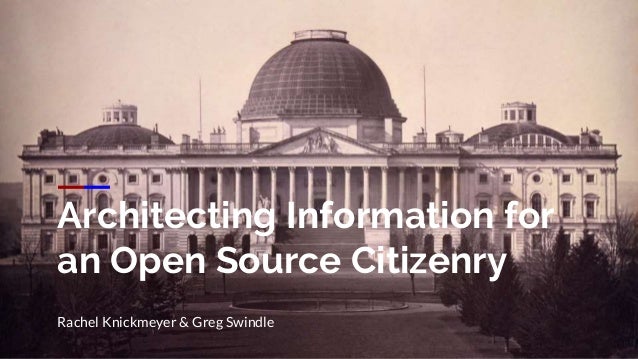Read "Architecting Information For An Open Source Citizenry" now .
Metaphorically, software and law have fundamental things in common. They’re both specialized, obtuse, and generally inaccessible to the layperson. Both govern our daily lives. And whereas software is compiled or interpreted and executed on specialized digital machines, law is interpreted and executed by specially trained human nervous systems.
Open source software relies on community support of two kinds: contribution and collaboration. The same concept lies at the heart of the Open Government Initiative, which focuses on transparency, participation and accessibility. Despite ongoing progress toward transparency, however, significant opportunities remain for improving how government collaborates with citizens to make the process of crafting legislation more accessible. In this talk, we propose that the problems we see with the current state of collaborative government participation is a problem of UX; and information architecture can provide a bipartisan pathway to solving these problems.
The following slides show how GitHub’s success stems from its user experience and understanding of its core users: developers. Jumping off from this, we discuss the concept of open government; covering some its important milestones; and demonstrate how some of the less successful ventures contained critical user experience shortfalls. Finally, we present research findings and a conceptual IA that is particular to the crafting of laws and legislation. This talk is a call-to-action as well: get ready to get involved!
